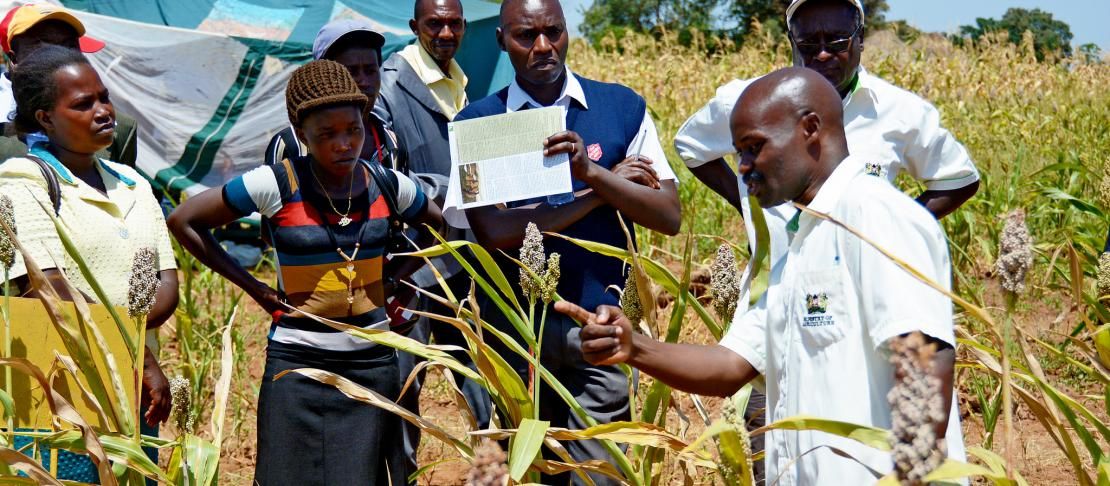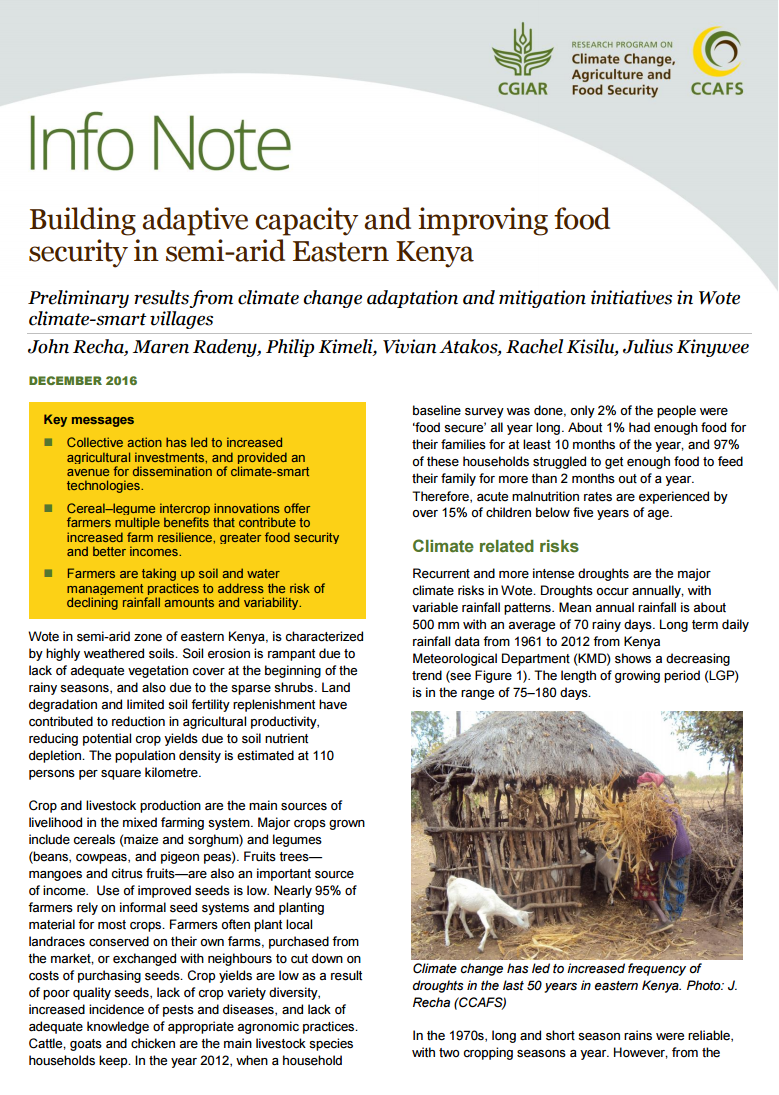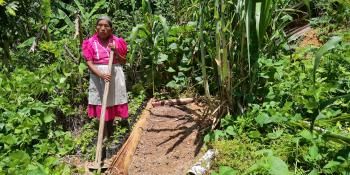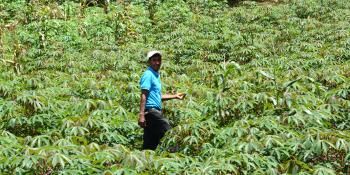Collective action for climate change adaptation and mitigation in Kenya

Farmers in Wote Climate-Smart Villages are engaged in testing climate-smart technologies to cope with climate risks.
Wote in eastern Kenya has been highly affected by climate change. In the last 50 years, the region has been experiencing increasing temperatures, low and variable rainfall, and poor soil fertility, all contributing to low crop productivity.
Building adaptive capacity and improving food security in semi-arid Eastern Kenya
In 2012, the CGIAR Research Program on Climate Change, Agriculture and Food Security (CCAFS) took action to create awareness about local climate risks to inform farming decisions, and contribute towards efforts to reduce hunger and malnutrition and improve household incomes and food security. CCAFS initiated partnerships between farmers, research organizations and policymakers to scale up and scale out the appropriate climate adaptation options.
A recently published CCAFS info note, titled Building adaptive capacity and improving food security in semi-arid Eastern Kenya, gives an overview of preliminary results from climate change adaptation and mitigation initiatives in the Wote Climate-Smart Villages. Through examples of climate-smart practices, such as soil and water management, the info note shows how partnerships build adaptive capacity and improve food security in the region.
How do CBOs influence farmers' climate adaptation strategies?
Community-Based Organizations (CBOs) are key in improving farmers' food security in the region. In 2014, farmers joined two CBOs that not only pool financial resources to farmers, but they also channel information on climate-smart agriculture technologies. The International Crops Research Institute for Semi-Arid Tropics (ICRISAT) in partnership with the Kenya Agricultural and Livestock Research Organization (KALRO), and Makueni County Department of Agriculture and Livestock train members of the CBOs on use of improved agronomic practices.
The info note describes three initiatives where CBOs are instrumental in informing farming decisions:
- Downscaled climate information services for better farm decisions: CBOs serve as the dissemination platform to reach farmers with weather information and provide appropriate agro-advisory services to farmers
- Resilient crop varieties to address food and nutrition challenges: CBOs organize farmer learning events to showcase new farm practices and value addition options. For example, these events promote intercrop innovations based on ICRISAT and KARLO research.
- Soil and water management practices: CBOs partner with the Makueni Country government to facilitate increased investments in water harvesting, with the County enacting by-laws for increased water use efficiency.
These examples show how partnerships with CBOs make a difference in local climate adaptation practices. The increasing number of members and the changes in members' farming practices prove the success of the CBOs. By August 2016 (two and a half years after they were formed), CBO membership increased from 140 to 620 households, out of which 70% are women. And by end of 2015, about 85% of the households had introduced one or two new crops or varieties up from 4% in 2012. CCAFS will continue partnering with like-minded organizations to avail and promote evidence-based solutions for climate change adaptation and mitigation.
Read more
- Info note: Building adaptive capacity and improving food security in semi-arid Eastern Kenya
- Blog: How community-based organisations promote climate-smart practices in Kenyan drylands
- Blog: Learning from adaptation experiences of local communities in Makueni, Kenya
Lili Szilagyi is Communications Consultant for the CCAFS Coordinating Unit and East Africa.



